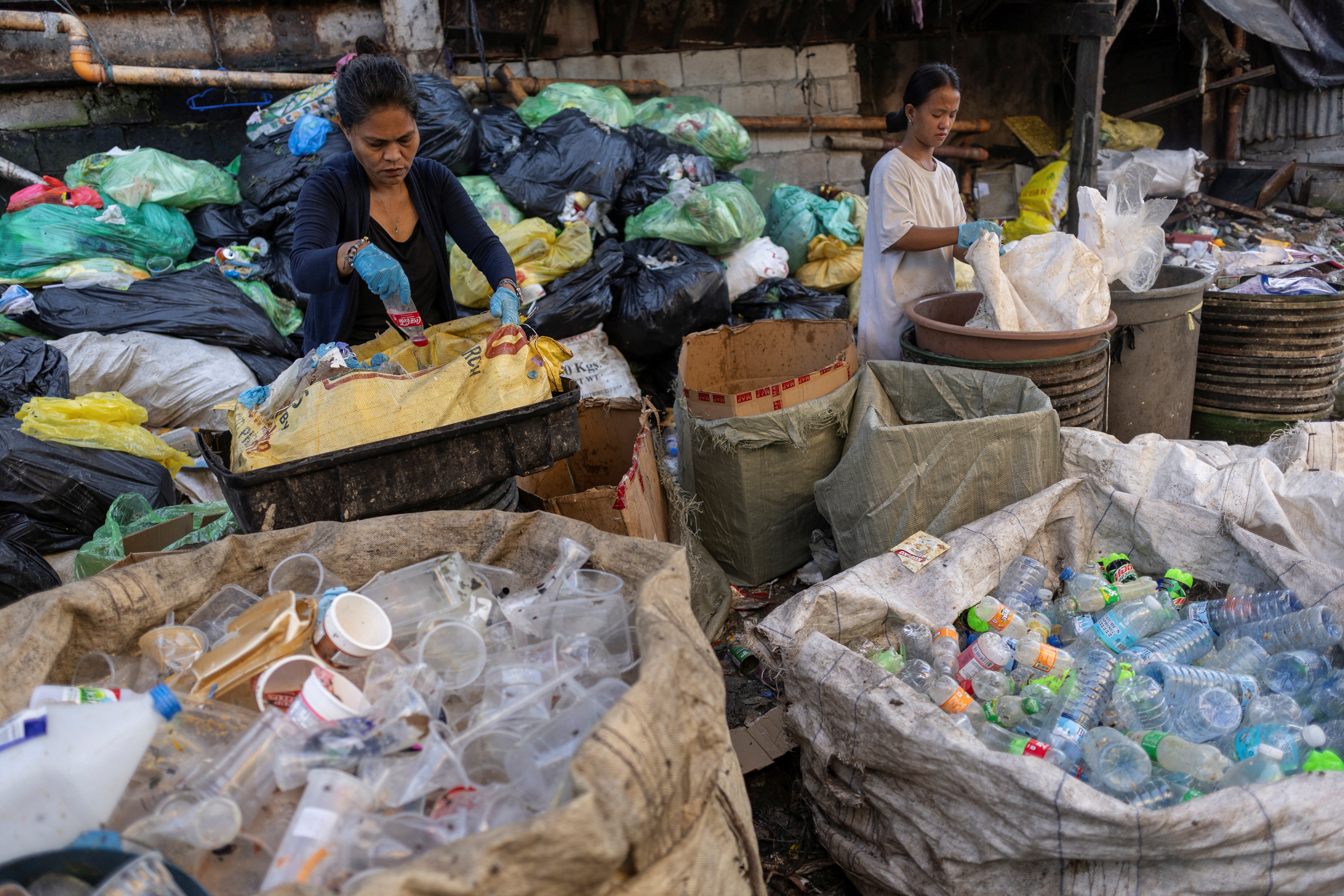New law in France will save 1 billion pieces of single-use plastic annually

The French government has published a list of about 30 fruits and vegetables that will have to be sold without plastic packaging from Jan 1. Image: REUTERS/Charles Platiau
- France will ban plastic packaging for nearly all fruit and vegetables from January 2022 to reduce plastic waste.
- It is estimated that this will prevent more than 1 billion items of unnecessary plastic packaging each year.
- Other measures are also being introduced in France across 2022 and 2023, such as providing water fountains to reduce the amount of plastic bottles.
France will ban plastic packaging for nearly all fruit and vegetables from January 2022 in a bid to reduce plastic waste, the environment ministry said on October 11 2021.
Implementing a February 2020 law, the government published a list of about 30 fruits and vegetables that will have to be sold without plastic packaging from Jan. 1. The list includes leeks, aubergines and round tomatoes as well as apples, bananas and oranges.
"We use an outrageous amount of single-use plastic in our daily lives. The circular economy law aims at cutting back the use of throwaway plastic and boost its substitution by other materials or reusable and recyclable packaging," the ministry said in a statement.
It estimated that 37% of fruit and vegetables are sold with packaging and expects that the measure will prevent more than one billion useless plastic packaging items per year.

French fruit sellers federation president Francois Roch said switching to cardboard will be difficult in such a short time.
"Also, selling loose produce is complicated as many customers touch the fruit and people do not want their fruit to be touched by other customers," she said.
The packaging ban is part of a multi-year government programme to phase out plastic. From 2021, France banned plastic straws, cups and cutlery, as well as styrofoam takeaway boxes.
Cut fruits and a limited number of delicate fruits and vegetables can still be sold with plastic packaging for now but that will be phased out by end June 2026.
Plastic packaging will be banned by end June 2023 for cherry tomatoes, green beans and peaches, and by end 2024 for endives, asparagus, mushrooms, some salads and herbs as well as cherries.
End June 2026, raspberries, strawberries and other delicate berries must be sold without plastic.
What is the World Economic Forum doing about plastic pollution?
From 2022, public spaces must provide water fountains to reduce the use of plastic bottles; press and publicity publications must be shipped without plastic wrapping, while fast-food restaurants can no longer offer free plastic toys.
From January 2023, France will also ban throwaway crockery in fast-food restaurant for meals consumed on-site.
Don't miss any update on this topic
Create a free account and access your personalized content collection with our latest publications and analyses.
License and Republishing
World Economic Forum articles may be republished in accordance with the Creative Commons Attribution-NonCommercial-NoDerivatives 4.0 International Public License, and in accordance with our Terms of Use.
The views expressed in this article are those of the author alone and not the World Economic Forum.
Stay up to date:
Plastic Pollution
Related topics:
Forum Stories newsletter
Bringing you weekly curated insights and analysis on the global issues that matter.
More on Circular EconomySee all
Felipe Basso
November 13, 2025







